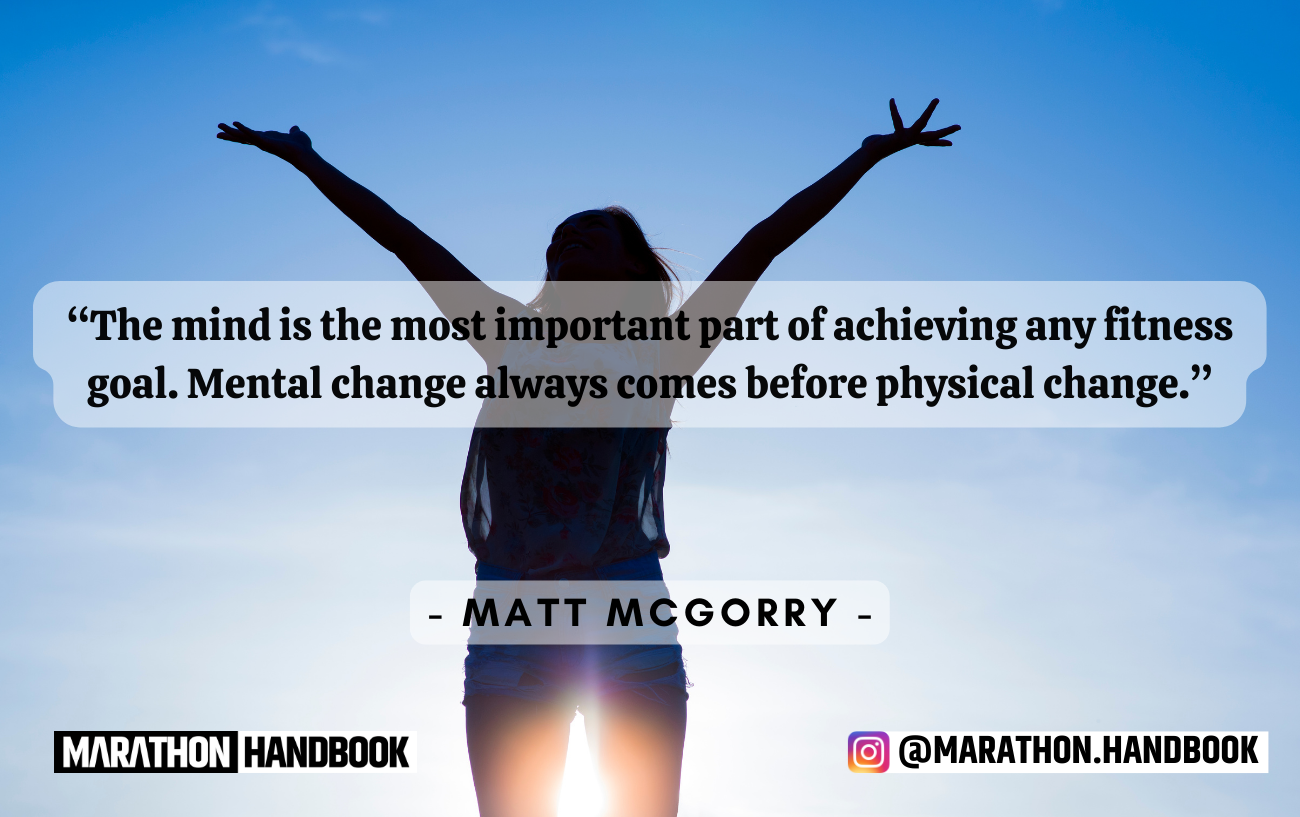Hello, Beautiful People! Do you think getting in shape is about lifting weights or jogging miles? It’s a mental game that requires flexibility, motivation, and a positive outlook. Many people effort for stability in their fitness journey just because of indecision, less motivation, or idealistic dreams.
Understanding the psychotic aspects of fitness is important for permanent victory. This blog shows how a strong mental game can help you face challenges, stay focused, and attain your fitness objectives. Stay connected and enjoy your life.
Let’s begin!
The Mental Game of Fitness

The path to stay fit is a mental game as well as a physical one. Our minds play an important role in determining our success.
The Mind-Body Connection
Our mental state majorly effects our physical performance. Negative thinking can:
- Drain our energy
- Reduce motivation
- Hinder progress.
Positive thinking can:
- Enhance performance
- Increase energy levels
- Improve overall well-being.
Overcoming Mental Barriers
Mental barriers can delay progress. They include:
- Fear of failure
- Lack of confidence
- Perfectionism
The Role of Inner Conversation
Inner conversation majorly effects our mindset and production. Positive self-talk can boost:
- Confidence
- Motivation
- Resilience.
Staying Consistent
Consistency is key to any fitness routine, especially during hard times. Developing mental toughness involves:
- Setting clear goals
- Embracing discomfort
- Viewing setbacks as opportunities.
Setting Realistic and Achievable Goals
Setting achievable fitness goals is a mental game necessary for regular progress. Straight forward goals provide a clear strategy and help you track your progress.
SMART Goals Skeleton
The SMART framework is an effective tool for setting goals that are:
- Specific: Comprehensibly define what you want to achieve.
- Measurable: Make sure your goal can be measured.
- Achievable: Set goals that are challenging but feasible.
- Relevant: Ensure your goal matched with your purpose.
- Time-bound: Set a time limit for your goal to keep yourself responsible.
Balancing Short-Term and Long-Term Goals
Keeping a balance between short-term and long-term goals helps maintain motivation.
- Short-Term Goals: These can be achieved in a few weeks or months. They provide instant satisfaction. Examples include running a mile without stopping etc.
- Long-Term Goals: These goals last for several months to years. Examples include, reaching a certain body weight etc.
Tracking Progress
Regularly tracking your progress is important for staying motivated. You can
- Use a fitness journal
- Progress towards your goals
- Keep your motivation high.
Celebrating Milestones
Celebrating achievements, no matter how small, strengthen positive behavior. This keeps you motivated. And you can stay committed to your fitness journey.
The following video is about fitness:
Building a Positive Mindset
A positive mindset is a mental game that is necessary for:
- Overcoming challenges
- Staying motivated
- Achieving long-term fitness goals.
Mental Game of Developing a Strong Mindset
Strong mindset is the ability to face hurdles and stay committed to your goals. Here are some tips to build resilience:
- Embrace Challenges
- Stay Persistent
- Adaptability
Mental Game of Power of Positive Self-Talk
Self-talk is the internal dialogue that boost up your emotions and actions. Following are methods to practice positive self-talk:
- Affirmations
- Reframe Negative Thoughts
- Celebrate Small Wins
Surround Yourself with Positivity
The people you surround yourself with can greatly impact your mindset. You should focus on:
- Supportive Communities
- Positive Relationships
- Inspirational Content
Mental Game of Stress Management
Mindfulness practices can help you remain calm and focused. Here are some methods to follow:
- Meditation
- Breathing Exercises
- Journaling.
Staying Motivated
Maintaining motivation is necessary for long lasting success in your fitness journey. Here are some methods to keep you motivated:
Mental Game of Finding Your “Why”
Understand the reason you want to stay fit. Whether it’s for better health, or attaining a specific goal, when you have a clear reason, it keeps you involved and observant. Regularly remind yourself of the benefits such as:
- Improved mood
- Better sleep
- Increased confidence.
Mental Game of Setting Clear and Achievable Goals
Set SMART (Specific, Measurable, Achievable, Relevant, and Time-bound) goals. Divide larger goals into smaller tasks. This makes advancement more real.
Track Your Progress
Record your workouts and achievements. Write everyday how you feel after each session. You can utilize technology to check your activity and celebrate achievements.
Mental Game of Creating a Supportive Environment
Involve with groups that share your fitness goals. Support from others can boost motivation. A free tip is finding a partner that can make exercising more enjoyable.
Mix Up Your Routine
To prevent boredom you should include different types of exercises, such as:
- Swimming
- Cycling
- Yoga
- Dance classes.
Reward Yourself and Stay Inspired
Reward yourself for reaching goals. Rewards can be:
- New workout gear
- A massage
- A special treat.
Involve with social media accounts, blogs, or YouTube channels that motivate. When we learn about others’ fitness journeys, it reminds us that our progress is also possible.
Coping with Setbacks and Plateaus
Setbacks undeniable parts of any fitness journey, the way you face these challenges can decide your long lasting success.
Understand Setbacks
Setbacks are short gap disturbances that can stop your progress. It’s necessary to know that these are normal. You should take following steps if you face hurdles:
- Acknowledge and Accept
- Identify the Cause
- Create a Recovery Plan
Mental Game of Strategies for Overcoming Setbacks
Setbacks occur when your progress stands even when you’re doing constant effort. You should:
- Change Your Routine
- Set New Goals
- Focus on Nutrition
- Rest and Recovery
Maintaining Motivation
Staying motivated during failures is important for getting back on target. Following are some tips to keep your motivation high:
- Reflect on Your Progress
- Visualize Success
- Seek Support
Mental Game of Building Resilience
Building resilience helps you handle failures in a better way. Following are methods to build up your resilience:
- Develop a Growth Mindset
- Practice Self-Compassion
- Stay Flexible
Creating a Routine and Sticking to It
Making a compatible fitness routine is necessary for attaining long lasting health and wellness goals. Following are tips to create an productive routine and stick to it.
- Assess Your Goals and Fitness Level
- Choose Activities You Enjoy
- Set a Schedule
- Incorporate Variety
Mental Game of Tips for Sticking to Your Routine
- Start Small and Build Gradually
- Plan Ahead
- Stay Flexible
- Find Accountability
- Track Your Progress
- Reward Yourself
- Listen to Your Body
- Making Fitness a Habit
- Integrate Fitness into Your Daily Life
- Stay Inspired
Conclusion
Getting in shape is a journey that requires both mental and physical dedication. You can have this by:
- Understanding the mental aspects of fitness
- Setting realistic goals
- Building a positive mindset
- Developing resilience
- Overcome setbacks
- Maintain motivation.
Remember to stay bendable, seek support, and celebrate your advancement along the way. Accept the challenges as chances for growth, and enjoy the learning lessons of becoming a healthier, stronger version of yourself. Your fitness journey is not just about reaching a target but enjoying the way you take to get there.
Let me know which thing you liked the most about this mental game of staying fit?
FAQ
Following are Frequently Asked Questions about The Mental Game of Staying Fit:
1. Why is mental game crucial for staying fit?
A positive mindset helps you:
- Stay motivated
- Overcome setbacks
- Maintain consistency.
2. What are SMART goals, and why should I use them?
SMART goals are :
- Specific
- Measurable
- Achievable
- Relevant
- Time-bound.
They give a clear direction to goal planning.
3. How can I stay motivated after I face problems?
You can stay motivated y following the following tasks:
- Reflect on your progress
- Visualize your goals
- Seek support from friends
- Celebrate small victories.
4. How can I create a justifiable fitness routine?
- Start with activities you enjoy
- Set a consistent schedule
- Incorporate variety
- Increase intensity
- Track your progress
- Stay flexible
- Include fitness into your daily life.
5. What should I do if I don’t do a workout?
- Don’t be too hard on yourself
- Acknowledge it
- Get back on track the next day
- Have alternative workouts.




